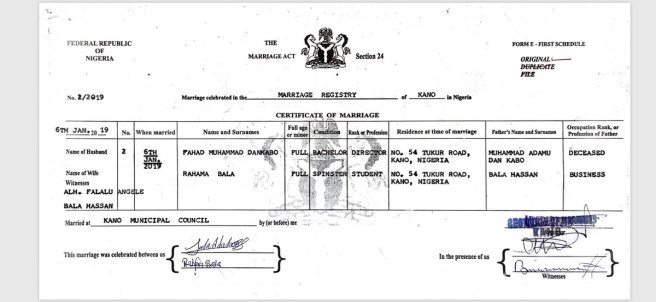In Nigeria, a statutory marriage, also known as a court or legal marriage, is a marriage that is conducted in accordance with the Marriage Act. Here are some of the key legal implications of a statutory marriage in Nigeria:
- Recognition:
- A statutory marriage is legally recognized throughout Nigeria and is considered a valid form of marriage.
- Legal Rights and Responsibilities:
- Both spouses have legal rights and responsibilities towards each other. These rights may include inheritance rights, spousal support, and property rights. Under the common law one spouse can be held liable for the debts of the other under certain circumstances.
- Monogamy:
- Nigerian law recognizes monogamous statutory marriages. If a person is already in a monogamous statutory marriage, they cannot enter into another statutory marriage without first dissolving the existing one.
- Age Requirement:
- Both parties must be of a marriageable age, which is generally 18 years old in Nigeria. Parental consent is still required for parties under this age.
- Consent:
- The marriage must be entered into with the free and informed consent of both parties. Any marriage entered into under duress or coercion may be voided under the Matrimonial Causes Act.
- Registration:
- Statutory marriages must be registered with the appropriate government authority. This registration provides legal evidence of the marriage.
- Divorce:
- In the event of a breakdown in the marriage, the parties have the legal right to seek a divorce through the courts. The Matrimonial Causes Act governs divorce proceedings in Nigeria. The MCA provides for maintenance, settlement of property in the event of dispute and custody rights for women. Under almost all of Nigeria’s customary laws the father has exclusive and sole custody. Under the MCA a spouse can sue for damages if the responding spouse had an affair.
- Property Rights:
- Statutory marriages often come with legal frameworks for the division of property and assets in case of divorce or death. Nigeria is a separate property regime. That means each spouse owns their own property and strict proof of ownership is required to prove ownership. Whoever name is on the document or receipt owns the property.
- Inheritance:
- Spouses in a statutory marriage have inheritance rights to each other’s estates in the event of death, subject to the laws of succession in Nigeria. This usually means that a widow will be entitled to 25% of the deceased husbands estate if there is no will, for instance.
- Immigration Benefits:
- Statutory marriage may have implications for immigration, as it can provide a basis for a foreign spouse to obtain a residence permit or citizenship. Most jurisdictions require proof of statutory marriage which is the Form E Marriage Certificate.

It’s important to note that there are also customary marriages in Nigeria, which are conducted according to the customs and traditions of specific ethnic or cultural groups. Customary marriages have their own legal implications and may vary in terms of recognition and rights depending on the region and local customs. Please do your research before you tie the knot. Know what you’re getting into.
For specific legal advice, marital research and detailed information about statutory marriages in Nigeria, consult with a qualified legal professional who specializes in family law. Book here.
